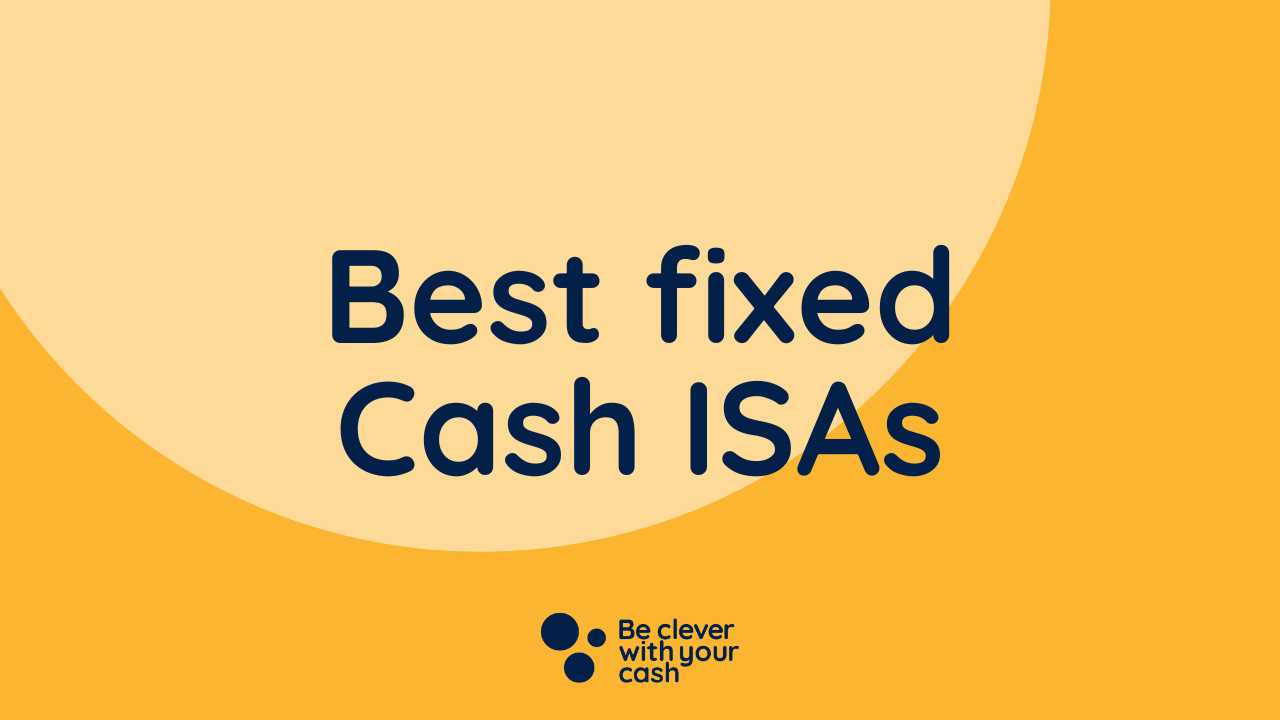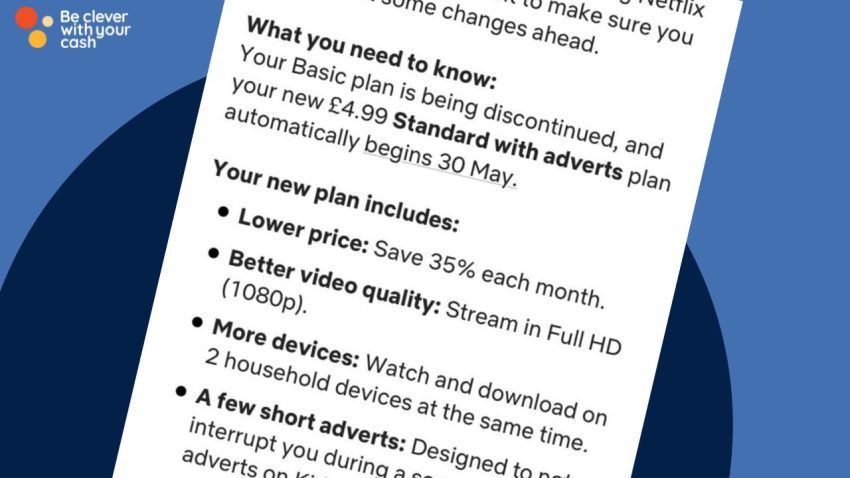There’s renewed speculation that the tax-free saving rules could be changed.
You might have seen that Chancellor Rachel Reeves is once again looking at ISA rules, with a view to announcing changes at the Budget on 26 November. Should you be worried and is there anything you need to do now? Here’s what we know.
Some articles on the site contain affiliate links, which provide a small commission to help fund our work. However, they won’t affect the price you pay or our editorial independence. Read more here.
What are the Cash ISA rumours?
Speculation started back in February this year. First there was talk of completely scrapping Cash ISAs, which soon turned into a cut from £20,000 a year for new deposits to just £4,000 or £5,000. There was enough of a backlash that a summer announcement of changes was cancelled.
But that didn’t mean reforms were dead, and Reeves has previously said that she’d continue to look at ISAs, but committed to keeping the overall £20,000 annual allowance the same.
The latest rumour going around is that the Cash ISA allowance will be reduced to £10,000 a year, representing a 50% cut. If this goes ahead, it’d likely work in the same way the Lifetime ISAs does, operating as a separate allowance within the overall £20,000 limit rather than in addition.
Why could the Cash ISA allowance change?
The idea behind the allowance cut suggestion is that too much money is held in cash rather than put into investments via a Stocks & Shares ISA. In theory, the more money that is invested, the better economic growth will be. Plus over time, savers should get higher returns.
Whether this is what would actually happen if the Cash ISA allowance is cut is up for debate. Just because people can’t put as much in to a Cash ISA doesn’t mean investing is the obvious default option. Instead it could well be people just keep money in a normal savings account, and ultimately pay more tax on their interest.
Building societies in particular have also come out strongly against the idea. They say that without Cash ISAs they’d lose the funds they use to help offer people mortgages and better interest rates.
On top of this, there’s talk that the British ISA could be resurrected. This was a policy from the last Government that never made it off the ground. It proposed an additional £5,000 allowance on top of the £20,000, but it could only be used for UK investments.
Rumours suggest if a British ISA does return, it’ll be in a different form to what was originally planned. For a start, rather than a separate ISA, there could be a requirement for a certain amount of any Stocks & Share ISA investments to be UK equities.
The Financial Times also says there could be a stamp duty break on shares which fulfil this as a way of encouragement. This would be worth 0.5%.
Will the ISA changes actually happen?
At first it was just talk and speculation. Indeed, the idea to end Cash ISAs came from “city bosses”, aka those who stand best to benefit from getting rid of Cash ISAs. But the rumours have persisted and the Treasury has looked closely at options.
And despite the backlash, Rachel Reeves certainly seems to agree with the idea of ISA reform as a way to get more people to invest, which in turn will help the economy.
It does seem though that those initial rumours to completely scrap Cash ISAs have gone away for good, but I think it’s highly likely we’ll see something about ISAs at the Budget on 26 November.
However, we still don’t know if what we’re hearing now will be what is announced, so there could well still be further twists and turns over the next five weeks.
When could ISA changes happen?
If there are any changes, it’s unlikely that they’d come into play in this 2025/26 financial year.
It’d take time for Cash ISA providers to update their systems and accounts for an immediate change. A 1 January 2026 starting point seems unrealistic too, as that’d only leave a month, and one that is disrupted by Christmas and New Year.
So if there is a change, it would most likely not be enforced until the start of the 2026/27 financial year, which begins on 6 April 2026 – more five months away. Even that might be too soon, with a year later in April 2027 also possible.
Of course, since we don’t know what will be announced, there could be changes at any time.
 Featured switching deal
Featured switching deal
 Customer rating
3.8/5
Customer rating
3.8/5
- Switch bonus£200
- Offer endsFree gift card ends 27 February
- Extra bonus£25 Amazon Gift Card
- FSCS Protected? Yes
- Switch bonus requirements Switch using the Current Account Switch Service and close your old account within 60 days of starting the switch
- Deposit requirements Deposit £1,500 in the first 60 days from opening the account
- Direct debits transferred over Set up two Direct Debits before or after the switch from a selected list of household bills
- Existing customers? Can't have held any Santander current account on 1 January 2025
- Restrictions Can't have received a switching bonus from Santander already, offer limited to once per person
- Eligible accounts Open a new or hold an existing Everyday, Edge, Edge Up or Edge Explorer current account
- £25 Amazon Gift Card requirements To qualify for the gift card, you need to complete a full switch using CASS, and make five debit card transactions within 30 days of opening the account. Offer ends 3pm 27 February 2026
Should you be concerned about ISA reform?
It sounds scary, but in reality it might not make too much difference to most people. Just a small fraction of savers are able to fill the full allowance each year, and a £10,000 cap would still be pretty generous.
And remember that’s on top of other tax free ways to save such as the Personal Savings Allowance and Premium Bonds – though of course these could also be changed!
So some big earners or those with a windfall would miss out if the allowance was smaller, but in the scheme of things that wouldn’t be massively unfair.
Even then, if the Cash ISA limit is cut in half, the overall £20,000 allowance is set to stay. That means it’d still be possible to shelter up to this amount away from the tax man via investing in an ISA. And while a Stocks & Shares ISA is probably a better product for longer term savings (at least five years), there are lower risk investing options available in these ISAs that act a lot like cash (albeit these could also change, and if not it needs to be easier for people to buy these).
It’s also incredibly unlikely that it’ll impact existing savings and investments. To make changes retrospectively would be very hard to implement and incredibly unpopular. So for any money saved or invested in ISAs using the annual allowance from previous years, interest and gains made on that cash should remain tax-free.
However, both suggested changes to the Cash ISA and introduction of British ISA requirements would make ISAs more complicated – the opposite of what is really needed.
Get the best of our money saving content every week, straight to your inbox
Plus, new Quidco customers get a high paying £18 welcome offer

Should you do anything now?
Even though it’s all rumours right now, you never 100% know there won’t be changes that are worse for you personally. So I’d still suggest you look to use as much of your ISA allowance as you can before the 26 November.
Since there is a chance there could be changes to how they work and allowances going forward, if you put money in ISAs now, you’re protecting that cash from possible reform.
It might be best to stick to easy access Cash ISAs right now as they’ll give you the flexibility to withdraw or transfer to a fixed or investment ISA if anything else changes before or at the Budget.









Does Rachel Reeves not realise that a lot of the so called wealthy seniors, save for their care in later life? Hence if they are constantly penalised for saving, they won’t be able to pay and the government will end up paying. Vicious circle – makes no sense.
How does this help people who already, have maximised this years Isa ?
Well spotted Andy that the people who would benefit most from this would be those trying to sell us Stocks & Shares ISAs and hence the people suggesting it.
Worst they are suggest this under the guise of ‘increasing investment’ but anybody who stops for 2 seconds to think realises that buying shares in ICI or Shell doesn’t actually increase investment, it’s the same as somebody selling something on ebay to someone else.
You’d struggle to buy shares in ICI anymore…